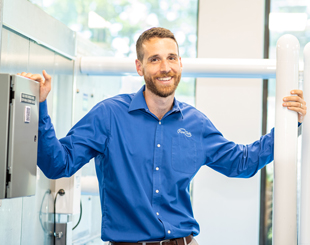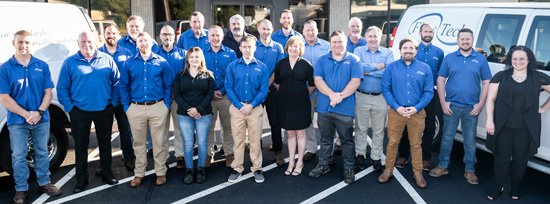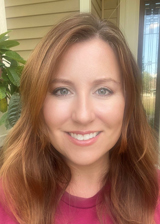What does ESOP stand for? As defined ESOP is an Employee Stock Ownership Plan. An ESOP grants company stock to employees every year. The stock value is based on the value of the company, while the number of shares awarded are based on how much each employee earns. Typically, it is part of a compensation package where shares will vest over a period of time. But, in reality, it is much more than that. Historically ESOPs motivate employees, increase productivity, improve worker retention, keep jobs local, contribute to business longevity, and much more.
While such plans aren’t for everyone, they have proved to be a perfect fit for two MANA-member independent rep firms.
Flow Tech, Inc.
Before graduating with a degree in mechanical engineering from the University of Connecticut, after an internship with a local design engineering firm, Mike Davis attended a job fair at his alma mater and was asked if he had ever considered a career in sales. That question came from Flow Tech, Inc. (www.flowtechinc.com), an independent manufacturers’ rep firm. Since he now serves as president of that agency he joined in 2009, his obvious answer was “Yes.”
According to Davis, “I felt I had a natural ability to connect with people and to sell. In addition, I was attracted to the work and the future benefits a career in sales would bring. I looked at it as an interesting career path and one that would really meet my expectations.”
Jump ahead to September of 2021, when Davis assumed the role of president of the agency. Davis explains: “That was the day we became an ESOP. We are a proud 100 percent employee-owned corporation, ensuring that everyone who contributes to the success of the company shares in the reward through earned stock in the firm.”
He continues that the timing for such a change was ideal in that “When I joined the agency, the owner was in his early 50s, and the feeling was that he might want to retire right around the time I would be capable of taking over the company. When I came on board, we developed a relationship, and we trusted each other. Everything just seemed to work out. Then when it came time for him to step away, we consulted with other companies that were ESOPs to learn how to make the transition. We also used a local valuation consultant that specializes in ESOPs. The consultant held the former owner’s hand throughout as we completed the process.”
Detailing some of the benefits of the move, Davis explains “Digging in, the number-one advantage was that it was a good move in terms of establishing a culture for the organization. It allowed us to grow our employee-first mentality — something that we’ve always had. Second, it limited risk on both of our parts. I didn’t come into the agreement with a ton of cash and the tax advantages ensured we could pay the former owner back in a timely manner.”
Throughout the course of the change to an ESOP, “It appears that all the consultants you deal with seem to know each other. There’s a great deal of learning all the pertinent rules and verbiage, not to mention Department of Labor and ERISA rules that apply. You also get to know a lot of people you wouldn’t necessarily come across in the normal course of business. It’s really a world in and of itself.”
If changing the ownership structure of Flow Tech was one major change Davis has seen in his tenure with the agency, he noted a couple of other important innovations in how business is conducted:
- “Being able to conduct business remotely has made us crazy efficient. Prior to Covid I had never used Zoom or other remote communication tools and now we use them all the time. It’s just so efficient. While we’re thrilled at every opportunity to meet with customers in person, why drive 45 minutes for a 15-minute meeting when you can accomplish everything remotely?”
- “The Flow Tech Demo Lab has proved to be a great way for us to connect with our customers, and allow our customers to connect with each other. It serves as an employee and customer training facility and a venue for recruitment events and open houses and a variety of other functions.”
Schu Marketing
One of the first things visitors learn at Schu Marketing’s website (www.schumarketing.com) is that it is “Proud to be an employee-owned manufacturers’ representative agency. We attribute our success to our dedicated team of employee owners. Our employees have a vested interest in Schu. So, consequently, at every level, and within every department, you will be working with an employee owner who is motivated to provide superior service.”
For more than 30 years Schu Marketing, Brooklyn Park, Minnesota, has represented manufacturers in the plumbing, heating, industrial, and architectural markets. The agency’s territory includes Minnesota, Iowa, Nebraska, North Dakota, South Dakota, Wisconsin, Kansas, Missouri, and the Upper Peninsula of Michigan. Schu also has offices and warehouses in Brooklyn Park, Minnesota and LaVista, Nebraska. Key products are stocked in both facilities for added convenience.
According to Sarah Levens, Schu’s president, “The agency was originally my father’s business. While I never thought I would follow a career path with the agency, I joined the business 18 years ago. We made the move to an ESOP in 2016 when my father sold the employees stock in the company. This was always our plan to allow him to retire from the agency.” She adds that “From day one, the ESOP has worked out to everyone’s satisfaction and that feeling has remained to this day.”
Levens notes that in addition to making the move to an ESOP in 2016, some other changes have occurred during her tenure with the agency. “Perhaps the biggest change in our operation is that we’re doing a lot more work virtually than ever before. I can think back to the time when all my dad had was a car phone to allow him to work remotely. Thankfully, today our entire staff are provided laptops. That’s something we were lucky enough to accomplish prior to Covid so there was no need to bring our staff up to speed when it came to working remotely. We’ve also initiated a hybrid work schedule for our inside sales staff.”
Another important addition to the agency is that of Schu University. According to Levens, “Schu University, our internal and external training facility proved to be especially valuable to us during and after Covid. During the pandemic, when everyone was stuck at home, this allowed us to get out to our customers as we were able to provide them with virtual product training. At the same time, we were able to train and teach our own staff members.” Today visitors to the agency’s website can download a continuing education course catalog and select from a variety of accredited courses.
As she considers how Schu Marketing has grown and changed during her nearly two decades with the agency, Levens explains there’s one thing she hopes manufacturers are appreciative of concerning what her company provides them: “On the one hand, we’re appreciative of any problems they may have, whether it deals with supply chain difficulties or shipping problems. At the same time, I hope they are appreciative of the expertise that we provide them when it comes to representing their products and services. I would hope that our manufacturers appreciate our expertise in the products and services that we provide.”
MANA welcomes your comments on this article. Write to us at [email protected].





